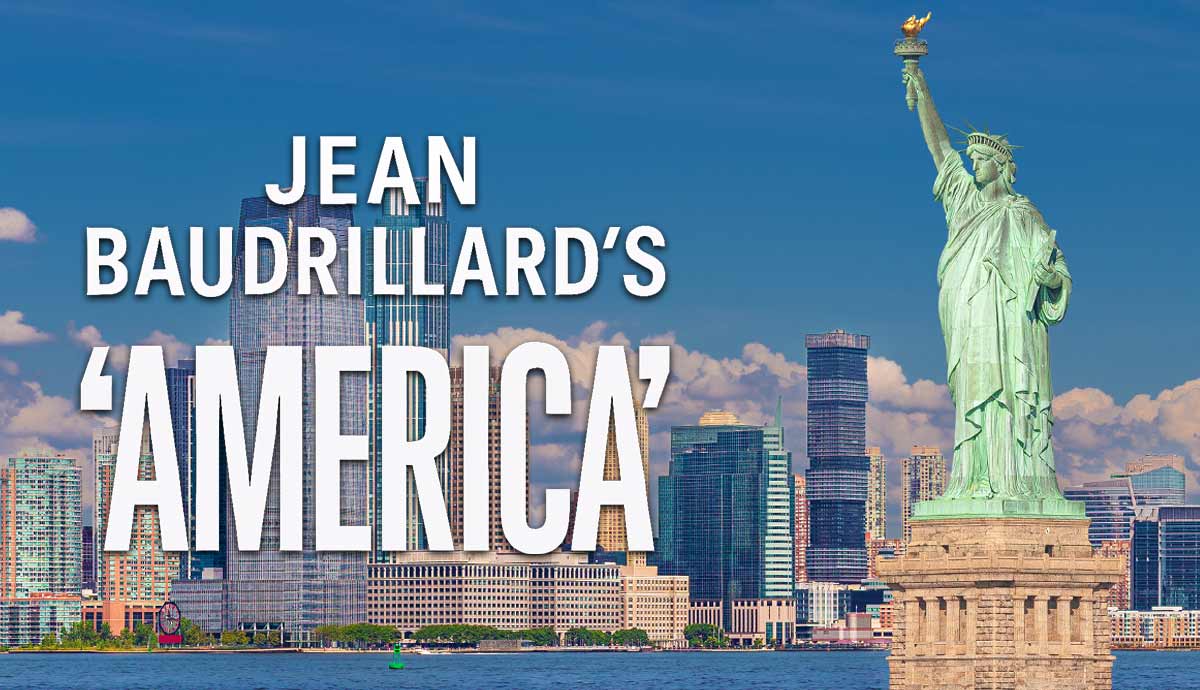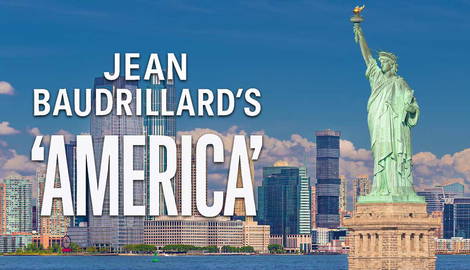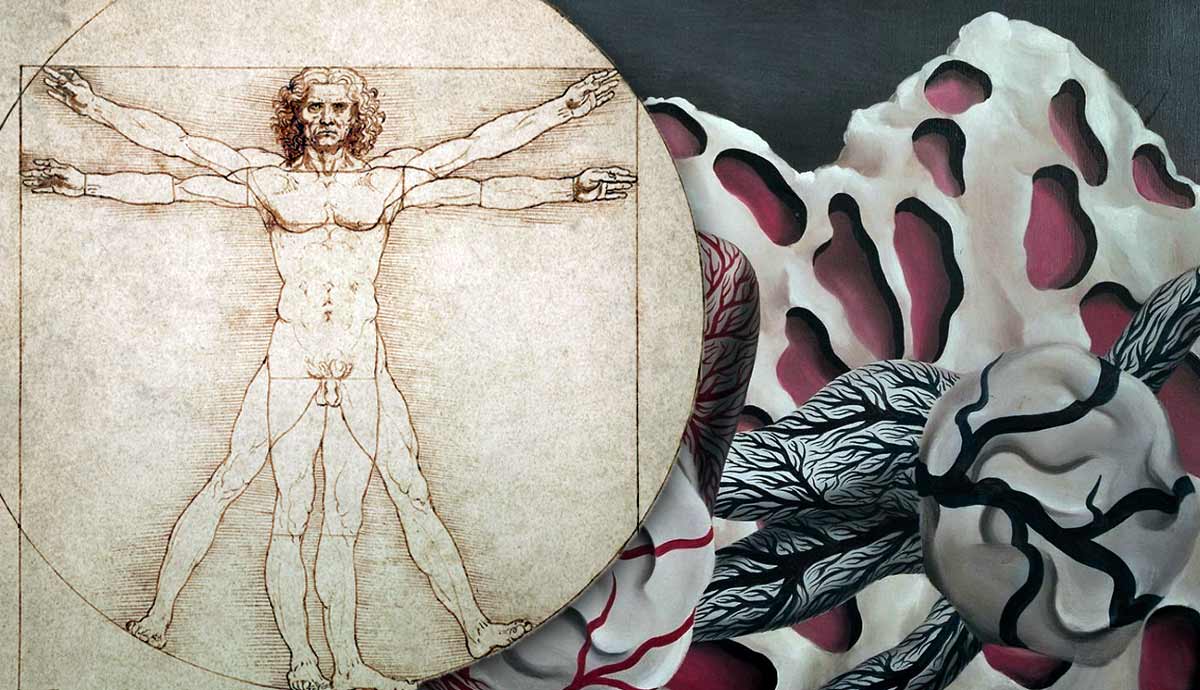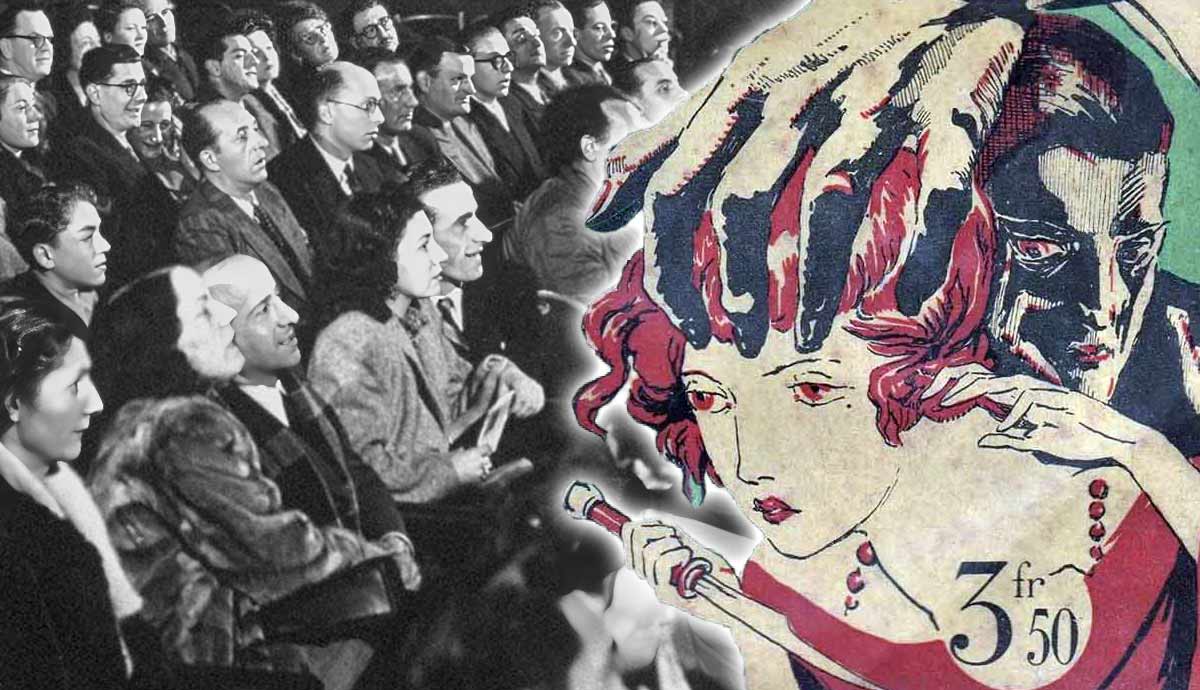
Stretching at least as far back as Alexis de Tocqueville in the 1830s, philosophizing French observers have long been fascinated by the promise and perils of America, its politics, and its way of life. Whereas Tocqueville reflected on Democracy in America, it took that dour prophet of the post-Marxist postmodern, Jean Baudrillard, to declare, in his 1986 America, that the “U.S. is utopia achieved.” This was, so to speak, Baudrillard’s “good news.” But he also concedes that the U.S. is the “world centre of the inauthentic.”
Jean Baudrillard’s “America”: Utopia Achieved?

What? How can the United States be both utopia and dystopia, a “successful revolution” and a place of “mythic banality”? Of course, it all depends on how one defines such terms. From sea to shining sea, America is awash with Baudrillard’s paradoxical proclamations about his host country, which he visited coast-to-coast several times in the 1970s and 1980s. For an intellectual who helped coin the term “hyperreal,” he is also a connoisseur of hyperbole in lavishing both cryptic praise and thinly veiled derision on the U.S.
Baudrillard’s slender, illustrated tract may madden the casual reader with its impressionistic excesses and obscure witticisms, but it nevertheless belongs on any bookshelf dedicated to American studies. It is also perhaps more relevant in the 21st century of the World Wide Web, social media, streaming, and digitization than in those simpler times only 40 years ago. Despite the author’s enthusiasm for the U.S. (to a point), there’s an underlying sense of resignation and gloom common to the “postmodern” thinker: i.e., global techno-capitalism has brutally succeeded, wiping out nearly all real opposition or alternatives, either economically or culturally. Indeed, a central Baudrillard thesis is that Europe, the “old world,” has lost the future to America and its consumptive, materialistic, asocial, “hyperreal” way of life. What counts today, perhaps more than anything, are the image, speed, and the “now,” not quaint reality, and not ideas or even history.
The Simulacrum

That’s not to say that the U.S. in 1986 was on top of the world, as it was in likely its zenith in the postwar 1950s. It’s often said that the “past is prologue” and for proof look no further than the reactionary “Reagan Revolution” of the 1980s. Following the demoralizing end of the Vietnam War, two decades of domestic cataclysms, and other enervating social schisms, Ronald Reagan promised a nostalgic return to an old, proud, omnipotent USA. A folksy, glib leader, the former Hollywood B-list actor ascended to the White House on the strength of his “illusionist efforts to resurrect the American primal scene.” This, to Baudrillard, was the “Reagan mirage,” where only signs of success and power are critical to the public, as in advertising and fashion, where “image alone counts,” not the nuts and bolts of factual reality.
For Baudrillard, underpinning his ruminations is the key postmodern notion of the simulacrum. Partially derivative of Plato’s well-known Allegory of the Cave, the simulacrum (from “simulate”) amounts to a copy of an object or concept, but a cheap or sham duplicate. It is not only a “knock-off” but is so removed from the original that the original has been forgotten or usurped, along with its unique worth. Take Southern California’s Disneyland (or Florida’s Disney World) as a blunt example. In the mid-1950s, Hollywood mogul Walt Disney built his namesake “magic kingdom” as a vast amusement park that not only would offer fabulous rides and attractions for children and adults based on iconic Disney movies, but it would also be a nostalgic tribute to the idyllic U.S. small town.

Disneyland’s welcoming “Main Street” was planned as a fantastic facsimile of everything good and wholesome in provincial Americana during the early 1900s. Nevertheless, it is a copy, and one that safely sanitizes the darker or complex realities of life then. More pertinently, at the same time Disney was building his utopian playground, America at large was beginning to suffer the plight of urban and small-town decay, whether due to racial segregation and “white flight,” or the deindustrialization and disinvestment as a result of the changing (some say mercenary) nature of U.S. and global corporate capitalism. The point here is not to disparage Disneyland and its fairy-tale Main Street, but to see how it is an ironic reminder of the neglect of real American small towns and the seeming preference of the simulacrum over the original.
Stranger in a Strange Land

It often takes a foreign visitor to offer up fresh (or perhaps unsettling) perspectives on one’s native country or environment. That is surely true of Baudrillard, who zeroes in on the uncanny social and geographic contrasts in the U.S.A. After his tour of Mormon-founded Utah (“puritanical conquistadors”) that climaxes in the “breathtaking” vistas of Salt Lake City, he reminds the reader that the state abuts the Mob-founded gambling Mecca of Las Vegas, “that great whore on the other side of the desert.” This, says Baudrillard, is an America paved with contradiction and paradox.
In recent years, in the wake of Donald Trump’s populist MAGA movement, coastal journalists have often been castigated for ignoring its growth and popularity as a historic, mid-American rural/suburban phenomenon. Perhaps they should have taken their cue from Baudrillard, who advised that “All you need to know about American society can be gleaned from an anthropology of its driving behavior.” He’s being teasingly provocative, but he’s also trying to redirect social analysis from rote armchair research (e.g., opinion polls) into the mundane, lived realities of the U.S. scene.

To start with, as a seismic break from the European Old World, it is a “tactile, fragile, mobile, superficial culture,” yet one with a vitality that springs from its very “lack of roots” and utter centrality of wide open spaces. There’s another bedrock presumption buried under its highways and byways, one that places individualism over any aims of “collective morality.” But, he asks, “Can a nation strike a pact of greatness on the basis of each individual’s banal interest alone?”
This legendary trait of “rugged individualism” even fuels such public exhibitionism as jogging and the near-cult of marathon running. While exclaiming “What an amazing place America is!” starting with New York City, he also makes a keen (and poignant) observation likely common to many international visitors: “The number of people here who think alone, sing alone, and eat and talk alone in the streets is mind-boggling.” New York is an “anti-Ark” and there is no real reason for all of its residents to live so densely packed in the city, except for the “ecstasy” of being crowded together.
Material Girls (and Boys)

For Baudrillard, central to the postmodern dilemma is the sense that plenitude and materialism have so won over U.S. society that there’s little left to achieve, leaving only boredom, fantasy, and the infinite variations fabricated from the mesmerizing power of the simulacrum and spectacle. This extends to human sexuality and gender roles, which are finally free of millennia of censorious social norms, which brings him to his slightly facetious question of “What are you doing after the orgy?” In this vein, he could hardly have anticipated the bottomless onslaught of internet pornography, which today offers up fetishistic sexualized images to individuals who can now virtually partake in the ultimate “remote control” of the simulated orgy at the click of a computer key.
The shallow, yet overflowing utopia of the hyperreal (“more human than human” is how 1981’s Blade Runner film put it) nevertheless can’t make those left out of the party magically disappear. Those who can’t—or won’t—conform to this Brave New World must be excised or suppressed. “POOR PEOPLE MUST EXIT,” he writes, as if such undesirables must forcibly obey a special highway off-ramp sign. In Reagan’s time (and our own?), “if America is resuscitated, then the massacre of the Indians did not happen. Vietnam did not happen.” Or, more jocularly, “Right, utopia has arrived. If you aren’t part of it, get lost!”
Jean Baudrillard’s “America”: Power Failure?

In another parallel to 21st-century developments, Baudrillard’s musings hardly papered over the tremors he felt in America’s foundations. While worldwide the “great anti-capitalist ideology” has largely crumbled (after all, the Berlin Wall fell in 1989, followed in turn by the USSR), U.S. omnipotence is more shadow than substance, more “simulation” than real. In light of the unprecedented economic strides of Communist China, isn’t America afflicted by a kind of “menopause,” its global image owing as much to inertia and recycled “USA! USA!” hype? Without getting too distant from Baudrillard’s America, can a nation that is in debt to the tune of $36 trillion (as of June 2025) still be called a grandiose superpower? Today, if the global traveler wants to see the sorts of spectacular “astral” highways, vistas, and cities that Baudrillard rhapsodized about, he/she will take a drive—or bullet train—in China.
Journalist and novelist Tom Wolfe famously called the 1970s America’s narcissistic “Me Decade.” In the 1980s, Baudrillard took that simple appellation manifoldly further, joining the chorus of postmodern seers to announce, in a sense, that history, evolution, is over, trampled by the twin onslaughts of gross materialism and its ubiquitous virtual counterpart, the simulacrum. The image, as a simulation of both object and event, can be synthesized, infinitely reproduced, bought, marketed, and sold.
So-called “creativity” is only repetition and regurgitation derived from and caught within the “closed loop” of the overarching turbo-capitalist global machine. Baudrillard describes the many after-effects, including the new “cult of the body” (sex, fashion, plastic surgery, shopping, etc.), that have replaced the pursuit of a social telos (an ultimate end or goal). To be just a bit flippant, in America Baudrillard might have quoted from that 1987 R.E.M. rock song—“It’s the End of the World as We Know It … And I Feel Fine.”










